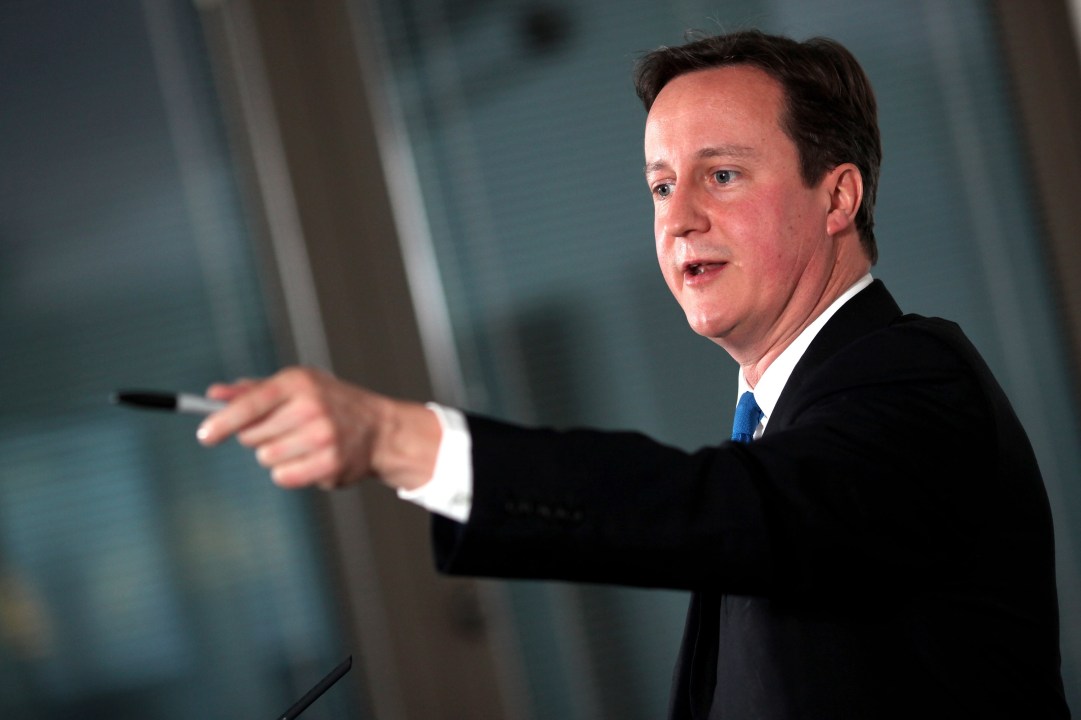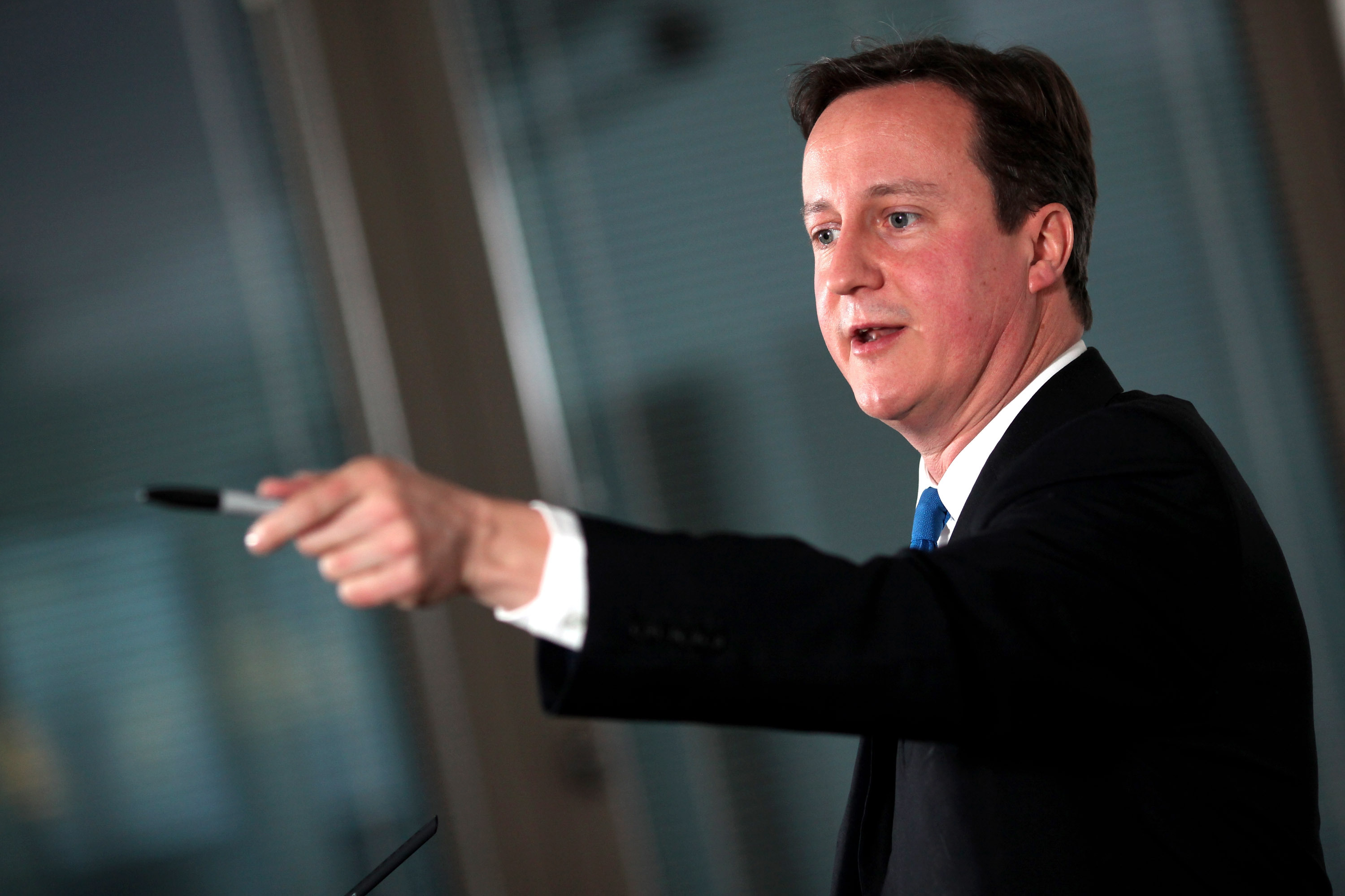 All the attention last week was on the Lib Dem split – but what about the division
within the Conservatives? This is the greater threat to the coalition, and while there is not likely to be an earthquake soon, one can discern the outlines of the tectonic plates. Ladbrokes has
odds of 5-2 of an election next year, and these don’t seem so short when one considers the short life of coalitions in British peacetime history. So where might the tension lie? A while ago, I
referred to the bulk of the party as “mainstream Conservatism,” as a more useful phrase than the tautological “Tory right”. Tim Montgomerie last week drew a distinction between this and what Ken Clarke calls “liberal Conservatism”.
I wrote about this in my News of the World
column today, which prompted an email from a Tory MP saying how many of his colleagues are asking “what is the point if everything I stood for in May is just ignored in office –
power with out principle is pointless and deeply unsatisfying”. One can agree or disagree with the sentiment, but there are rising concerns among the Tory backbenches. They won’t rebel, there
is no plan for regicide. But it’s worth looking a little at what’s going on.
All the attention last week was on the Lib Dem split – but what about the division
within the Conservatives? This is the greater threat to the coalition, and while there is not likely to be an earthquake soon, one can discern the outlines of the tectonic plates. Ladbrokes has
odds of 5-2 of an election next year, and these don’t seem so short when one considers the short life of coalitions in British peacetime history. So where might the tension lie? A while ago, I
referred to the bulk of the party as “mainstream Conservatism,” as a more useful phrase than the tautological “Tory right”. Tim Montgomerie last week drew a distinction between this and what Ken Clarke calls “liberal Conservatism”.
I wrote about this in my News of the World
column today, which prompted an email from a Tory MP saying how many of his colleagues are asking “what is the point if everything I stood for in May is just ignored in office –
power with out principle is pointless and deeply unsatisfying”. One can agree or disagree with the sentiment, but there are rising concerns among the Tory backbenches. They won’t rebel, there
is no plan for regicide. But it’s worth looking a little at what’s going on.
Mainstream Conservatism can be defined as the beliefs shared by most Conservative members, in common with the public. Euroscepticism, for example, can scarcely be found in the House of Commons, yet only a third of Brits think that EU membership is “a good thing”. So being Eurosceptic might mean one is on the fringe of Westminster opinion (or that of the metropolitan elite in general), but pretty well aligned with general public opinion. Newspapers (and magazines) are read regularly by a minority of people: they tend to reflect the views of their target readers. Liberal Conservatism may be more in tune with the media, but this is not the same as the vox populi.
Liberal Conservatives tend to have spent more of their lives in Westminster, imbibing its values and learning a new version of the ‘middle ground’ – ie, a mid-point between the skewed spectrum of political opinion represented in the House of Commons. This is not much shared by the new MPs (half of the parliamentary party) who are fresh in from the real world, and feel a greater loyalty to their constituents than a government whose agenda is different to the one on which they stood for office.
The beliefs of Mainstream Conservatives? Tough on crime, sceptical about closing prisons, hawkish on defence, anxious about immigration and hostile to the European Union. The Liberal Conservatives like the coalition because it cements their power in the party – and, indeed, many want the coalition to last for another five years. Mainstream Conservatives look forward to the time where they can dump the Lib Dems, and many say so in terms.
This distinction between these two groups mirrors, pretty much, that which Sir Keith Joseph famously drew between the ‘middle ground’ and the ‘common ground’. I’d normally quote him directly, but a
politician subsequently put it even better:
This was David Cameron, delivering the 2005 Keith Joseph Memorial lecture to the CPS. This time last year, when I was preparing my own lecture (text here) it struck me just how much of Cameron’s speeches contain the values of Mainstream Conservatism. He’s not one of these people who are still, in their heads, fighting the Tory Wars of 1995-2005 (and who still use the labels of that era, like ‘moderniser’ or ‘traditionalist’ etc). Cameron is at home with both main strands of Tory thought, making him ideally suited to be leader. But, as James Forsyth has argued, Cameron is proudly a post-ideological politician: he regards himself as chairman of the board, his mission to keep everyone happy. This skill is essential to working a coalition.“You reach the middle ground as an exercise in political positioning, splitting the difference between the parties. You seek the common ground through a process of profound political inquiry, understanding the deepest values of the British people. Seeking the middle ground, you define yourself by the position of your opponents and you lose any connection between your policies and your principles. That is what happened to Tony Blair. The real task of politics is to apply your principles and your values to the issues which most concern people.”
Interestingly, the new MPs have no interest in (and are pretty baffled by) the Tory Wars and its terminology. Calling oneself a ‘moderniser’ now is like a Labour MP calling oneself a Kinnockite: it was right for a certain period of history, but politics moves on rapidly. Trying to apply the Blair tactics to the Tories was never going to work: it was playing by a 1997-00 gameplan, when conditions had shifted to look more like 1979-1982. New Tory MPs (with the exceptions of those who were advisers/combatants during the Tory Wars and have, ergo, been shaped by it) are suspicious of this Blair-style ‘Triangulation’. Cameron himself has denounced it as “the process of working out what you should say by reference to your own past position, and your opponent’s current position”. As Cameron says, this is political fudge: the electorate can smell it a mile off, and they tend not to vote for it.
So Cameron needs to keep this balance in his party. This means giving Gove and IDS all possible support from No.10: their agendas are, right now, the glue which keeps the Tory coalition together. As James argues in the Mail on Sunday today, Cameron may have to eject Ken Clarke. The Tory leader has spoken against the deception of the “centre ground” clearly enough to demonstrate that he’s not taken in by it.








Comments